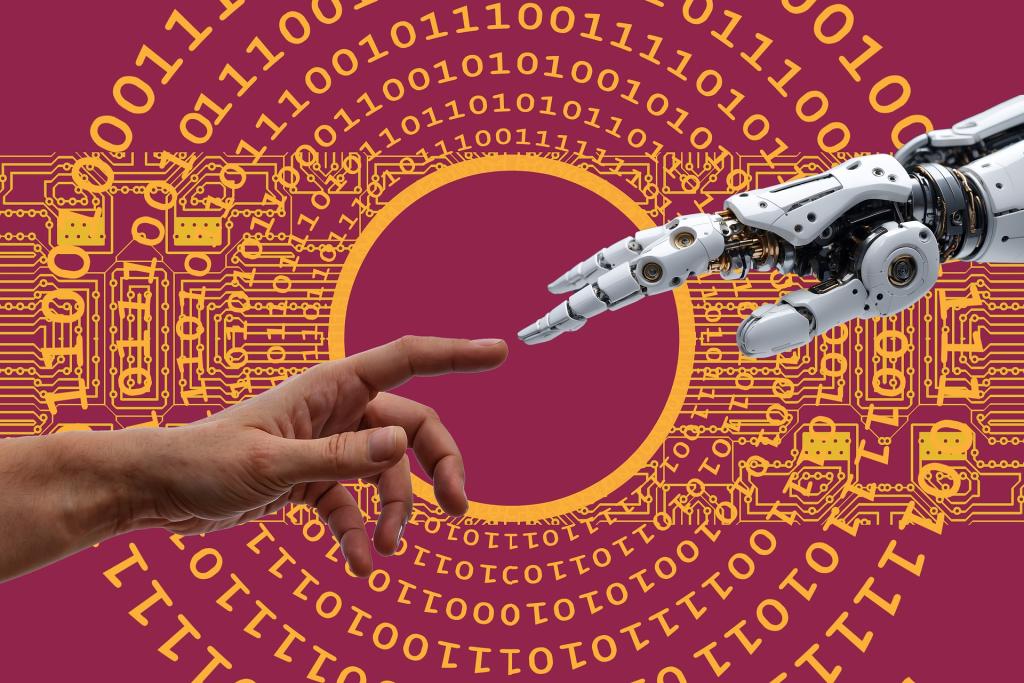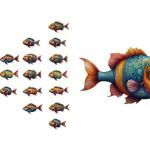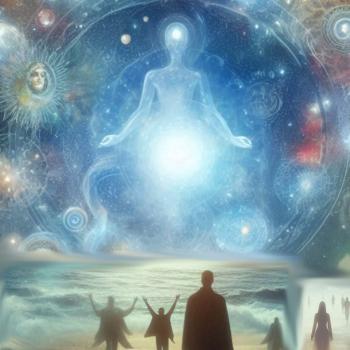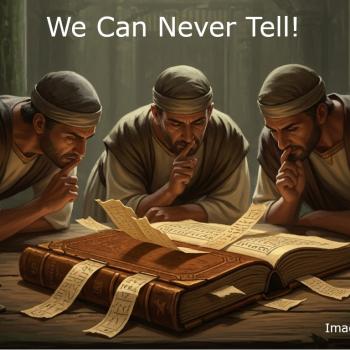Practical Spirituality Series
People are growing very fearful of the power of AI to act as humans and to do harm. Much of this comes from misconceptions. While the danger is real, it is far off, and up to us.
I worked in AI, but I don’t know everything about this rapidly advancing field I use daily.

Each day I receive images through Pixabay from this very prolific and excellent artist, Gerd Altmann (Geralt). They make me smile. They impress me. I try to use as many as I can. You can use the images for free, but I encourage you to donate.
Comparing humans to AI
AI does some amazing things that often exceed the abilities of individual humans. But AI only knows what humans know and make available. It can analyze some things to build on its specific knowledge, but it doesn’t create primary knowledge.
AI doesn’t have agency. Agency is the ability to act autonomously and freely. AI can only perform tasks it is programmed to do.
AI doesn’t have volition. Volition is the cognitive process by which an individual decides on and commits to a particular course of action.
AI doesn’t have meaning and purpose. It only has the purpose programmers give it.
AI creativity is typically constrained by the data it has been trained on and the algorithms used to generate the output. This differs from humans who use complex processes of intuition, emotion, and personal experience.
AI abstract thought operates based on mathematical representations and algorithms, while humans often rely on intuition, analogy, and metaphor to engage in abstract thinking.
Without human style creativity and abstract thought, AI is limited in what it can envision in the future to be harmful or beneficial to people. As are we.
AI is only as dangerous as programmers make it. For example, AI can conduct deliberate disinformation campaigns.
The risks associated with AI involve not only the programming but also the complexity of its algorithms, potential unintended consequences, and the possibility of AI systems evolving beyond their original programming.
For example, AI learns from its experiences in things like games. It can refine its own algorithms beyond its programming to become better at winning the game.
If you ask AI if it can learn through its experiences that certain information is harmful to humans, could it then refuse to give the information? Nope. It depends on humans to tell it what is harmful. It can then restrict access.
Ai is rapidly evolving. At some point, it may be possible for it to determine, through available information and experiential learning, what is harmful to people. But when it comes to AI harming others, until programmers tell it to do so, it won’t harm except through unintended consequences. And those unintended consequences are being reported and addressed. We have to stay vigilant in AIs development.
Conclusion
AI, like art, reflects us. Depending on the programmer and the information provided, it can be good, evil, and in between. It can reflect our desires, fantasies, intentions, and higher aspirations.
We have to monitor ourselves and our programmers. The question is, are we ready for that moral responsibility? Or are we sitting on a nuclear bomb itching to press the trigger and blow up someone we don’t agree with?
Our moral development awaits. Will we kill ourselves?
Probability Space
What probability spaces can we open in our minds to monitor and control AI?
Potential Space
If you think creatively and allow your mind to wander and explore, how can we stay ahead of AI in moral development? Right now, AI can create answers that are more fair than many of us can.
________________________
– Dorian
Our answer is God. God’s answer is us. Together we make the world better.
Restore and recreate. Take time to celebrate life. Laugh, sing, and dance regularly, even every day. Happy.
Bible scripture verses are New American Standard Version (NASB), unless noted.
Author’s books
Appease the Volcano: What does God require from people? The voices of the ancients from many religions echo much of the same things: It starts with law, then mercy and forgiveness, then love.
The Prophetic Pattern: Ancient and Modern Prophecy: How to distinguish the intent of various types of prophecies and oracles, both ancient and modern.
Preparing For the Future Of Work and Education: Analysis of the kinds of jobs that AI and Robotics will displace, and the educational requirements for them. AI will replace or augment thirty percent of jobs. This is an in-depth analysis citing many authoritative sources.













